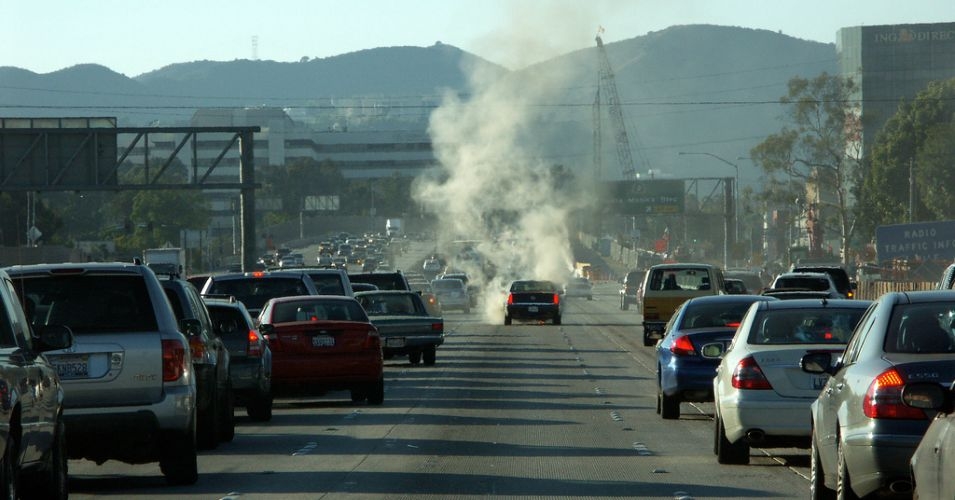California lawmakers are preparing to face off with the state’s powerful fossil fuel industry in a battle over two potentially groundbreaking climate change bills.
The more contentious legislation in question, the Clean Energy and Pollution Reduction Act of 2015 (SB350), would increase California’s share of electricity from renewable energy sources to 50 percent and reduce the state’s use of oil in half by 2030—the equivalent of removing 36 million cars and trucks from the roads over the next 15 years—through new technology and more efficient planning.
The second piece of legislation, the California Global Warming Solutions Act (SB32), would raise mandates for oil refineries and power companies, among other big polluters, to lower their greenhouse gas emissions.
Introduced by state Senate President Pro Tem Kevin de León, SB350 has picked up a slew of endorsements from state lawmakers—including California Governor Jerry Brown—along with a firestorm of opposition from oil and gas industry lobbyists.
“This is a fight worth having because it’s a fight for our children’s health, it’s a fight for the economic future of the greatest state in the country.”
—Kevin de León
Brown has indicated his eagerness to sign the bill, particularly in light of the state’s unprecedented drought, now entering its fourth year, which recent scientific reports revealed is being exacerbated byclimate change. In a statement last week, Brown said, “It’s time for Republicans, foot-dragging corporations and other deniers to wake up and take sensible action before it’s too late.”
But those same corporations are pushing hard against SB350.
Fliers sent this week to California households by the Western States Petroleum Association (WSPA), which represents the fossil fuel industry, warn that the bill will implement “gas rationing to control when families can fill their tanks, surcharges on non-hybrid mini-vans and SUV’s, penalties and fines for drivers who use too much gas,” and other effects.
Unlike previous environmental bills, SB350 “is something entirely different,” said WSPA spokesperson Tupper Hull. “It is an attempt to essentially put oil companies out of business.”
But while the oil and gas industry spreads what lawmakers in Sacramento are calling a “doomsday” message, Berkeley-based energy consultant Bentham Paulos clarifies in a piecefor Grist, “The problem? There is no such bill.”
“Big Oil hates a California climate bill so much that it’s telling outright lies about it,” Paulos writes.
As de León told the Sacramento Bee last week, “The irony is they’re scaring the very same people who are most harmed by the product, working-class folks. There is a perverseness to it,” referring to the environmental impacts felt most deeply by low-income communities.
These dynamics set the stage for a likely volatile end to the state’s legislative session, which will break on September 11, and draw battle lines over California’s economic and environmental future.
The bill would represent “the first major victory of the political system over Big Oil.”
—Brent Fleishman, 350.org
“WSPA is a powerful actor in our state capital and they fight dirty,” Brett Fleishman, senior analyst at climate advocacy group 350.org, told Common Dreams on Friday. Passing SB350 would represent “the first major victory of the political system over Big Oil.”
“It would be a case study for state governments and the federal government,” Fleishman added. “SB350 is a really important and strong step that would take on climate change head on.”
However, as 350.org fracking campaign coordinator Linda Capato Jr. told Common Dreams, a strong step is still just a step—particularly in a state that faces opposition from a massive oil and gas industry.
“SB350 isn’t doing enough to turn off the spigots,” Capato Jr. said. “We need to step up even further. What are the industries that are causing climate change?…. Even if SB350 passes, we’re still pulling [fossil fuels] out of the ground.”
The bill “is one step, and it’s a small step…. It’s a step that we needed 20 years ago,” she said.
Still, she said, the impact of the bill could be far-reaching. “California leads the nation,” Capato Jr. said. “We have a very strong responsibility.” Policy that is enacted in the state “will be replicated in other places.”
As de León said at a recent press conference, “This is a fight worth having because it’s a fight for our children’s health, it’s a fight for the economic future of the greatest state in the country. It is not hyperbole and it is not over dramatization to say the world is watching very closely.”


